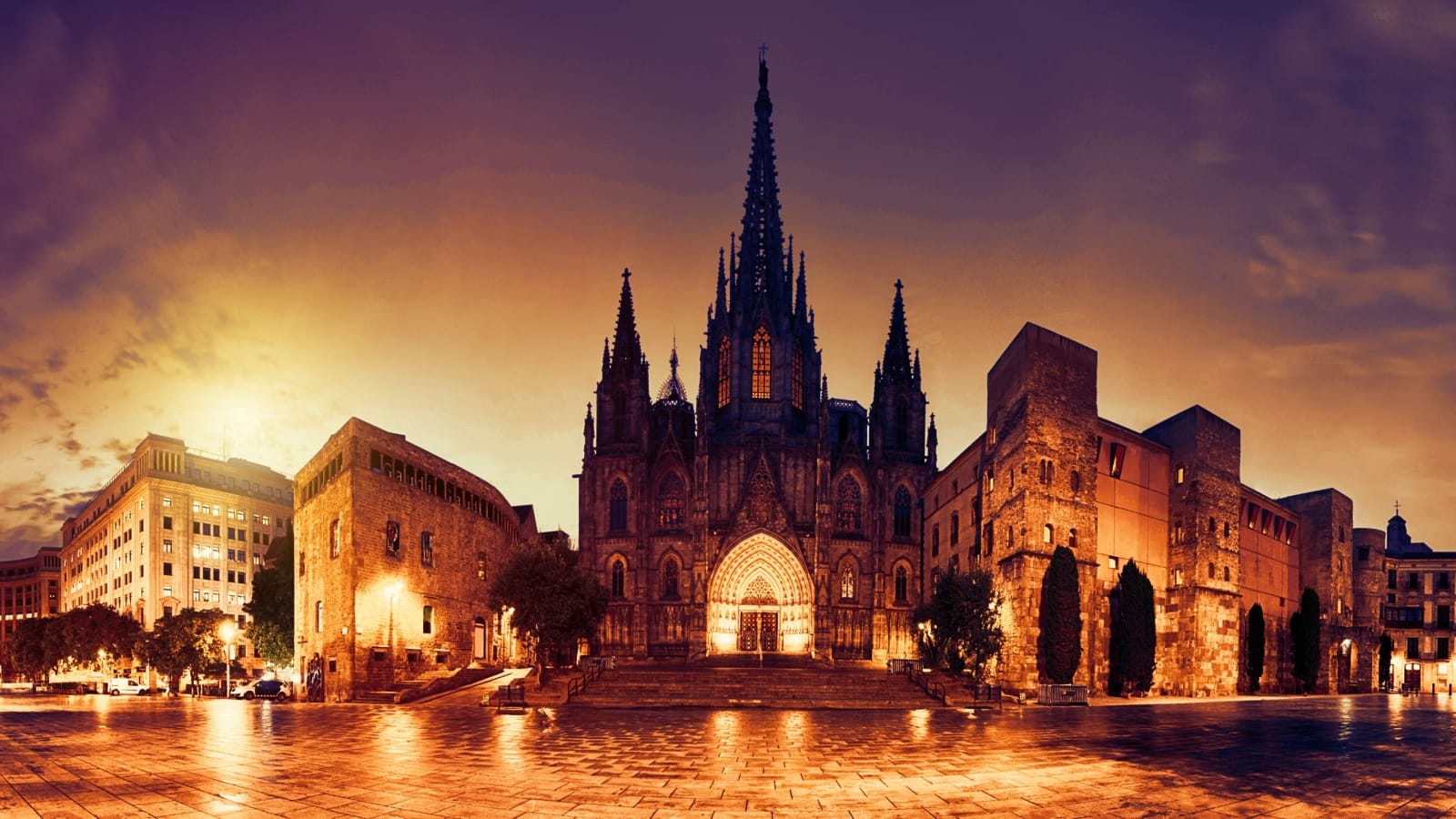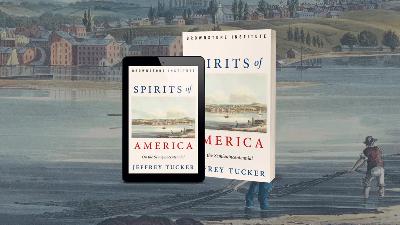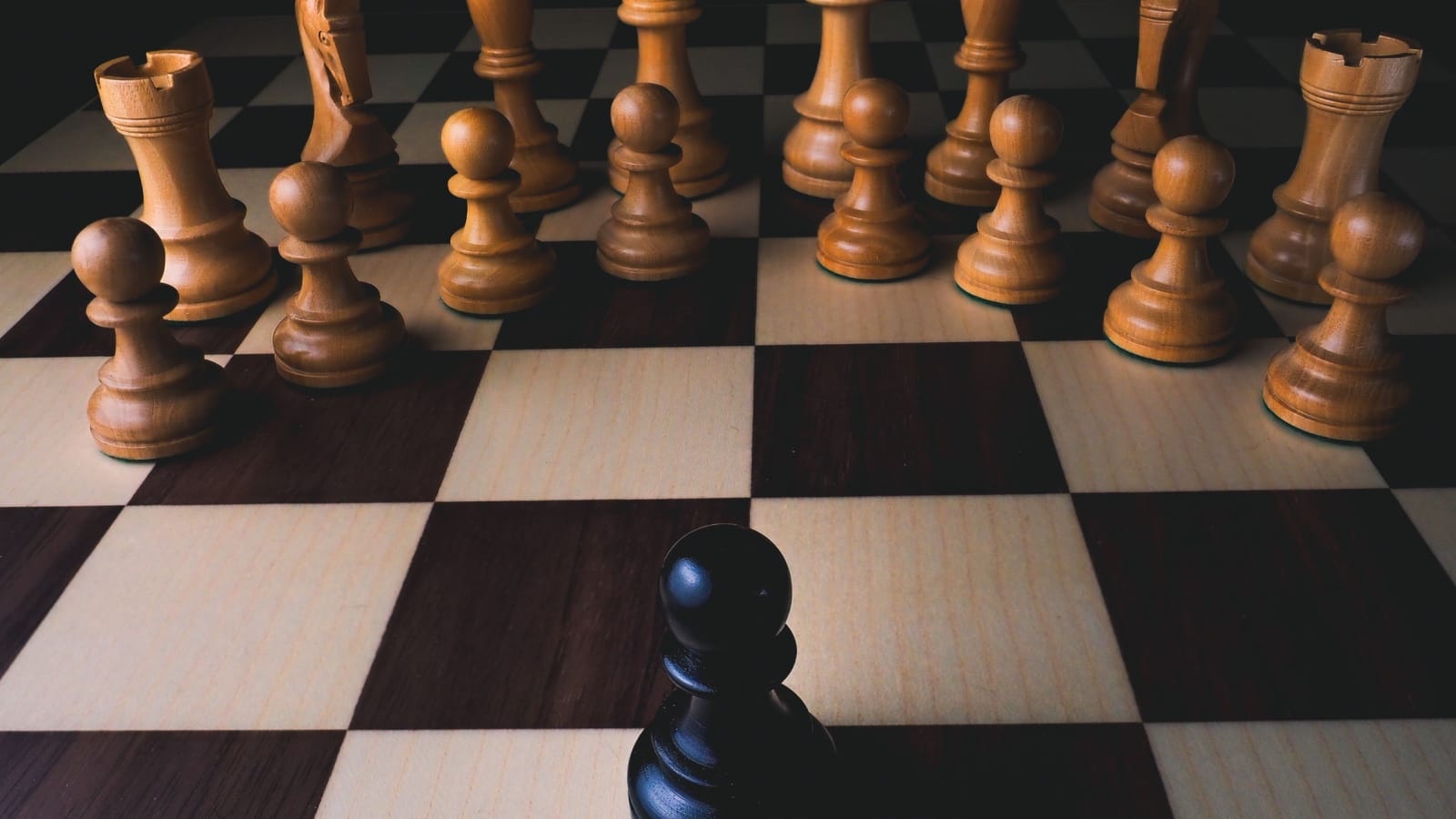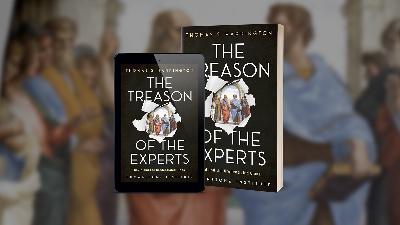To Yearn for Sincerity Amidst Doubts
Update: 2025-10-04
Description
By Thomas Harrington at Brownstone dot org.
In the Fall semester of 2018, I was given permission to teach at my college's campus in Barcelona, a program that I had founded nearly two decades before and visited quite frequently in my roles as its academic director and frequent leader of its summer programs.
Needless to say, I was excited, as the city and its culture had been a prime focus of my research for several decades. That I would be there at a time when the independence movement was still strong and my book in Catalan on that subject would be released, with all that that would hopefully entail in the way of press interviews and book signings, only added to my sense of anticipation.
But most of all, I looked forward to sharing some of what I had learned about Spain and Catalonia over the years in situ with my students.
At the risk of sounding immodest, I can say that I never had much problem connecting with my students. Of course, I never reached them all. But I almost always managed to get the majority to engage seriously with historical ideas and events and to ponder their possible links to their own lives and cultural circumstances.
That was until that Fall semester of 2018 in Barcelona.
Under pressure from the college to increase Study Abroad enrollments, we had lifted the Spanish-only requirement for the program. While it did increase our numbers, it brought us a very different type of student than that I was used to working with (courageous enough to attempt serious intellectual work in their second language), ones much more like the indifferent seat-warmers I had heard my colleagues from larger and less demanding departments serially gripe about back in Hartford.
A week or so into the course, a million-person march for Catalan independence filled the streets of Barcelona (a city with one of the higher population densities in Europe) in a way that was absolutely impossible to ignore.
In the days preceding that September 11 Diada, I had given the students a brief explanation on why this was happening and had encouraged them to go out and observe the always remarkable and highly photogenic mass spectacle.
The following day - in a class centering on the history of Spain and Catalonia - I immediately opened the floor for questions and comments on what they had seen.
No one had anything to say. And no one, and I mean no one, was the least bit curious about what had taken place in the streets of the city the day before in terms of its relationship to politics, history, social esthetics, or anything else. Pure silence and pure indifference.
And things continued in this manner for another several weeks as I presented documents that had, in my classes' long elicited intense curiosity and lively questioning about the social dynamics of identity formation in general, and the historical particulars of such phenomena within the city of Barcelona and the various "culture nations" (Castile, Catalonia, Galicia, Portugal, and the Basque Country) of the Iberian Peninsula. .
Fed up, I finally decided to break the fourth wall; that is, to open up a discussion on the meta-dynamics of the classroom theater in which we were all engaged.
I started things off by saying that it seemed to me that we were playing a game in that they had decided beforehand was essentially vacuous and insincere, in which their role was to politely listen to me and what they had decided would be my boring and uninspired pro-forma murmurings and, when it came time for papers and exams, to repeat back to me a reasonable summary of my own words in order to get a good grade.
When they got over the initial shock produced by my naming of the game, their tongues suddenly loosened, and one by one they began telling me, each in their own way, that what I had said was more or less spot on.
They then went on to tell me that this was what went on in almost all their classes back on the home campus with what they understood to be the full, if tacit, complicity of their pro...
In the Fall semester of 2018, I was given permission to teach at my college's campus in Barcelona, a program that I had founded nearly two decades before and visited quite frequently in my roles as its academic director and frequent leader of its summer programs.
Needless to say, I was excited, as the city and its culture had been a prime focus of my research for several decades. That I would be there at a time when the independence movement was still strong and my book in Catalan on that subject would be released, with all that that would hopefully entail in the way of press interviews and book signings, only added to my sense of anticipation.
But most of all, I looked forward to sharing some of what I had learned about Spain and Catalonia over the years in situ with my students.
At the risk of sounding immodest, I can say that I never had much problem connecting with my students. Of course, I never reached them all. But I almost always managed to get the majority to engage seriously with historical ideas and events and to ponder their possible links to their own lives and cultural circumstances.
That was until that Fall semester of 2018 in Barcelona.
Under pressure from the college to increase Study Abroad enrollments, we had lifted the Spanish-only requirement for the program. While it did increase our numbers, it brought us a very different type of student than that I was used to working with (courageous enough to attempt serious intellectual work in their second language), ones much more like the indifferent seat-warmers I had heard my colleagues from larger and less demanding departments serially gripe about back in Hartford.
A week or so into the course, a million-person march for Catalan independence filled the streets of Barcelona (a city with one of the higher population densities in Europe) in a way that was absolutely impossible to ignore.
In the days preceding that September 11 Diada, I had given the students a brief explanation on why this was happening and had encouraged them to go out and observe the always remarkable and highly photogenic mass spectacle.
The following day - in a class centering on the history of Spain and Catalonia - I immediately opened the floor for questions and comments on what they had seen.
No one had anything to say. And no one, and I mean no one, was the least bit curious about what had taken place in the streets of the city the day before in terms of its relationship to politics, history, social esthetics, or anything else. Pure silence and pure indifference.
And things continued in this manner for another several weeks as I presented documents that had, in my classes' long elicited intense curiosity and lively questioning about the social dynamics of identity formation in general, and the historical particulars of such phenomena within the city of Barcelona and the various "culture nations" (Castile, Catalonia, Galicia, Portugal, and the Basque Country) of the Iberian Peninsula. .
Fed up, I finally decided to break the fourth wall; that is, to open up a discussion on the meta-dynamics of the classroom theater in which we were all engaged.
I started things off by saying that it seemed to me that we were playing a game in that they had decided beforehand was essentially vacuous and insincere, in which their role was to politely listen to me and what they had decided would be my boring and uninspired pro-forma murmurings and, when it came time for papers and exams, to repeat back to me a reasonable summary of my own words in order to get a good grade.
When they got over the initial shock produced by my naming of the game, their tongues suddenly loosened, and one by one they began telling me, each in their own way, that what I had said was more or less spot on.
They then went on to tell me that this was what went on in almost all their classes back on the home campus with what they understood to be the full, if tacit, complicity of their pro...
Comments
In Channel























